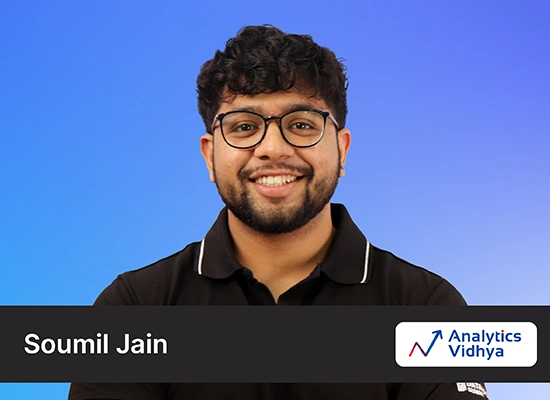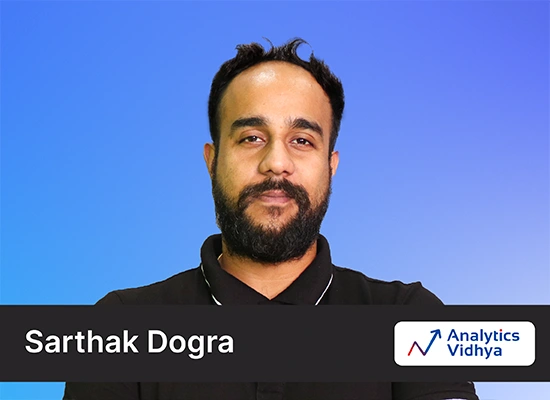In this edition of Leading with Data, we feature Favio Vazquez, a physicist turned computer engineer and data scientist. Armed with a master’s degree in physics and a profound interest in cosmology, Favio has not only generated over 2M USD in new business for H2O.ai but has also been instrumental in securing 20+ customers in the Latin America. Join us as we delve into Favio’s journey, uncovering profound insights at the crossroads of physics, computation, and the impactful realm of data science.
You can listen to this episode of Leading with Data on popular platforms like Spotify, Google Podcasts, and Apple. Pick your favorite to enjoy the insightful content!
Key Insights from our Conversation with Favio Vazquez
- Transitioning into data science is often unexpected but rewarding for those with a background in scientific computation.
- A data science career demands a balance of technical expertise and business acumen, emphasizing practical experience.
- Generative AI is set to change the future of data science, but the basics of machine learning will still be important.
- Data scientists must prioritize continuous learning and staying updated on industry trends to remain competitive and innovative.
Now, let’s look at the questions asked by Favio Vazquez in the session and how he responded!
How did your journey in Data Science begin?
My journey into data science was quite serendipitous. Originally from Venezuela, I pursued physics and computer engineering with a deep interest in cosmology and astrophysics. I foresaw the growing importance of computation in physics, which led me to learn about programming and large-scale computational problems. My first real exposure to data science came during an internship where I was required to perform data analysis. Although I was familiar with machine learning from a scientific perspective, applying it to business was new territory for me. This experience piqued my interest, and I began to delve deeper into data mining and machine learning, marking the start of my data science career.
What were the early challenges in building a Data Science ecosystem in Mexico?
When I moved to Mexico, I realized the need to build a data science community in Latin America. Along with others who shared this vision, we began organizing conferences, sharing knowledge, and connecting with professionals across the region. We were essentially laying the groundwork for the first wave of data scientists in Latin America. To keep up with global trends, I turned to platforms like KDnuggets, Towards Data Science, and Analytics Vidhya, which were some of the few resources available at the time.
How did you transition from academia to a full-fledged Data Science career?
The transition was gradual. While completing my master’s degree in physics, I was already dabbling in data science projects for fun. However, the demand for data science expertise in Mexico was growing, and companies began reaching out to me for collaboration. Eventually, I decided to go for a PhD in physics and fully commit to a career in data science. This decision led me to work with some of the largest companies in Mexico, where I played a strategic role in establishing their data science capabilities.
What kind of projects have you worked on, and how did they shape your career?
I’ve tackled different projects, predicting customer behavior, finding the best spots for stores, and assessing risk in banking. These experiences turned me into a generalist, helping in my current role at H2O.ai, where I handle projects in various industries. My advice for newcomers: specialize in a specific area in data science. It’s tough to be seen as an expert if you try to do too much.
How has your role evolved at H2O.ai?
At H2O.ai, my role is end-to-end, encompassing pre-sales activities like demos and proof of concepts, as well as working closely with customers to integrate AI tools, build models, and develop data science strategies. This has given me a broad understanding of various industries’ needs and how AI can be applied effectively. I believe my future lies in taking on more strategic leadership roles, guiding teams to success in the data science and AI space.
What are your thoughts on the future of Data Science and your career path?
Generative AI is the current buzzword, and I believe it will dominate the field for the next few years. However, classical machine learning models will not become obsolete anytime soon. As for my career, I aim to move into more strategic roles, leveraging my extensive experience to lead teams and help companies transform through data science. I also emphasize the importance of staying informed about the latest trends by reading research papers, attending conferences, and following industry reports.
Summing Up
Favio Vazquez’s journey shows how things just fell into place as he moved from studying to a successful career in data science. His role at H2O.ai highlights his dedication to shaping the future of data science. Even with the excitement about Generative AI, Favio stresses that old-school machine learning is still crucial.
For more engaging sessions on AI, data science, and GenAI, stay tuned with us on Leading with Data.





